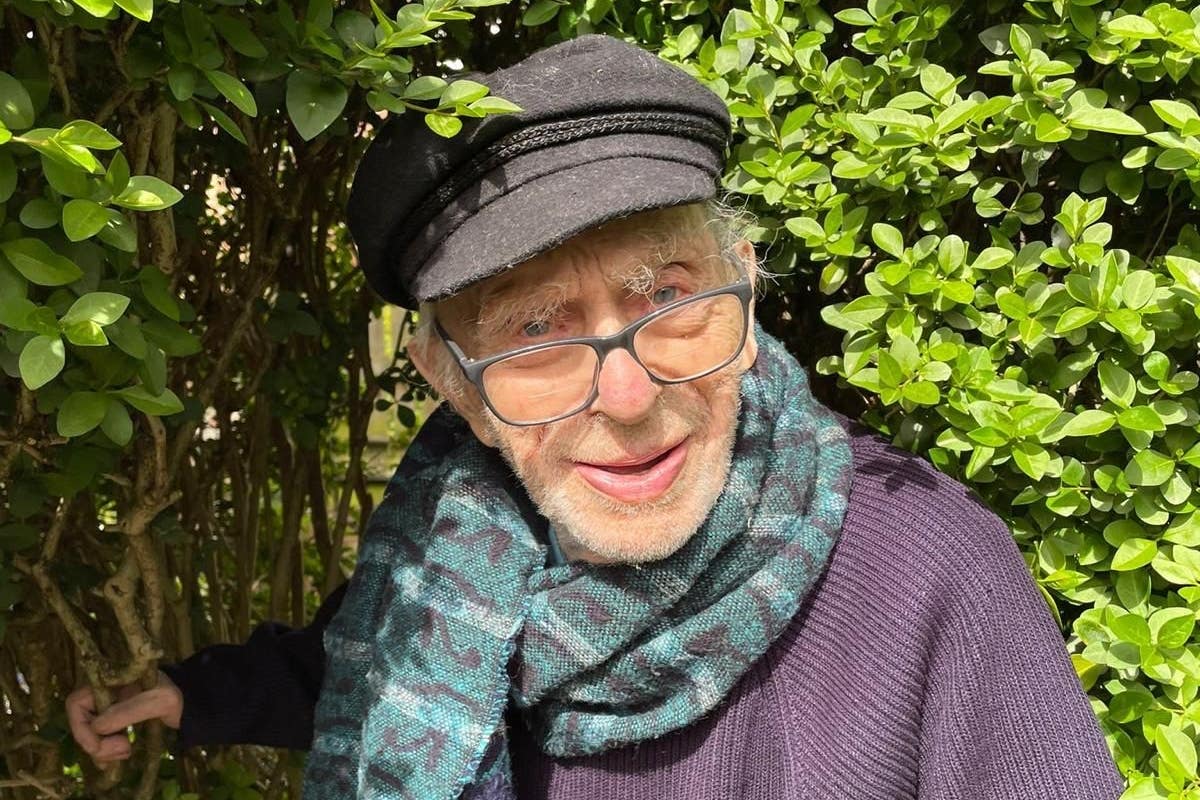Poet and playwright Bernard Kops dies aged 97
His work explored themes including life in East End London and its Jewish community.

Your support helps us to tell the story
From reproductive rights to climate change to Big Tech, The Independent is on the ground when the story is developing. Whether it's investigating the financials of Elon Musk's pro-Trump PAC or producing our latest documentary, 'The A Word', which shines a light on the American women fighting for reproductive rights, we know how important it is to parse out the facts from the messaging.
At such a critical moment in US history, we need reporters on the ground. Your donation allows us to keep sending journalists to speak to both sides of the story.
The Independent is trusted by Americans across the entire political spectrum. And unlike many other quality news outlets, we choose not to lock Americans out of our reporting and analysis with paywalls. We believe quality journalism should be available to everyone, paid for by those who can afford it.
Your support makes all the difference.Poet and playwright Bernard Kops has died “peacefully” surrounded by his loved ones at the age of 97, his family has announced.
Throughout his career, he published dozens of plays, a host of novels and poetry anthologies which explore themes including life in East End London and its Jewish community.
A statement shared with the PA news agency by his family said: “Poet and playwright Bernard Kops died peacefully Sunday surrounded by his great love, Erica, and the many family members who never found themselves far from the embrace of his smile or his words.”
Born in the East End of London in 1926 to Dutch-Jewish parents, he left school as a teenager.
He established himself with his first play The Hamlet Of Stepney Green in 1957, which portrayed a working-class community through the relationship between an ill father and his adult son.
It was hailed as a significant contribution to the “kitchen-sink” drama style and has been performed near and far afield.
Among his other plays was 1991’s Playing Sinatra, a psychological drama set in London which follows grown-up siblings Norman and Sandra who live out their fantasies in the music of their favourite performer.
He also wrote the surrealistic drama Ezra, based on the personality of American poet Ezra Pound.
Within his work, he has also explored themes including the Holocaust as well as his love for his wife Erica and his immediate family.
Kops also broke through to radio and television production having recounted his experience of evacuation in the TV series The World At War, first broadcast in 1973.
He also wrote the script for the 1974 film Just One Kid, which sees a Jewish Eastender recall growing up in poverty in the 1930s and being part of a community.
In his later years, Kops hosted a writer’s workshop that he ran with playwright Tom Fry.
He was like a page of his work: witty, warm, dark and celebratory. Full of lyric rages and love for his family
His publisher David Paul said in a tribute: “Sad to learn of the death of Bernard Kops death this morning.
“He was the last of the celebrated crop of Jewish writers that emerged in the 1950s out of the Jewish East End such as (Harold) Pinter and (Arnold) Wesker, and he was prolific with a cornucopia of plays, novels and poetry.”
He said he got to know him in his twilight years when he published his 2010 poetry collection This Room In The Sunlight, which included one of his best known works – Shalom Bomb.
Mr Paul said the piece became an “anthem for the Campaign for Nuclear Disarmament” and opens by saying: “I want a bomb, my own private bomb, my shalom bomb / I’ll test it in the morning, when my son awakes.”
He also noted the first few lines from his poem Whitechapel Library/Aldgate East, where Kops discovered his love for books, are inscribed on the window of the reading room at the Whitechapel Art Gallery.
The publisher added: “He was like a page of his work: witty, warm, dark and celebratory. Full of lyric rages and love for his family.
“And full of stories such as finding Allen Ginsberg in his bed with his boyfriend, which he turned into a poem.”